|
I intended to start my workday at church by improvising on the organ but the new Rode Wireless Go mic distracted me. I spent entire first half of the day trying to set it up and doing some tests with it. I found out my USB-C cable wouldn't hold in place. I need to replace the charger slot. Maybe the replacement will arrive on Monday. @contrabourdon helped me figure out correct gain level. I finally succeeded and played two Gregorian chant improvisations on "Medium" gain. Then I sight-read BWV 660 and BWV 661 while putting the phone camera above my hands on the organ light. I was amazed by the sound Rode mic helped produce. I put the receiver on the edge of the balcony, further away from the keyboards so that no action noise would be heard. It's 10 times better the sound than my Huawei Mate 10 Pro phone mic could record before.
Here's a link to Amazon page of Rode Wireless Go. Also, if you use a phone to record, you will need SC7 cable. I also purchased USB-C to 3.5 mm headphone jack adapter because my phone doesn't have a headphone jack. If you do decide to buy something on Amazon from these links, I will get a small commission.
Comments
I checked my email and saw a message titled "Oink Oink" from @laputis who sent me a link to some video. In this video a Greek reporter was being chased by a pig. I thought the pig wanted to be friends but video said she tried to have a bite at reporters pants.
https://www.delfi.lt/video/uzsienis/graikijos-zurnalista-tiesioginiame-eteryje-uzpuole-kiaule.d?id=82892123&jwsource=cl It was now the time for me to go downstairs and practice some organ. In about 3 weeks @laputis and I will play "Christmas with Bach" recital and the two solo pieces I will be playing will be 2 versions of "Nun komm" - BWV 660 and BWV 661. I played it through a couple of times stopping at every beat. I later calculated I will need 10 days to master these chorale preludes, if I will manage to stop at consecutively larger fragments each day. Today should be stops every half measure. Then I remembered to check if Markek wrote some of his ideas on Facebook about the recent Ciurlionis organ competition. Having not found anything, I wrote a proposal to play organ duet recital to Riga's St John's church and to Ireneusz Wyrwa with the proposal to be on the jury of his organ duet competition in 2020. In the evening @laputis and I went to practice our Bach cantata organ duet arrangements. The hardest for me still is the opening chorus from "Wachet auf" cantata and the tenor aria from the 2nd cantata from Christmas Oratorio. I still can't remember its title. Maybe it's because tenor clef seems to be very user unfriendly to me. When @laputis played her solo chorales "Nun komm" and "Wachet auf", I read "American elf, 1999'. I wish I hadn't done this while sitting on the sofa behind our pipe organ because I simply love when @laputis practices. Next time I hear her play, I promise to pay attention and cheer her up. When we were done practicing, @laputis asked me, "How many steps do you have?" I said, "7400 and you?" "12600. Fitbit gave me more when we played. It's obvious whose part is more difficult." At the Unda Maris rehearsal yesterday I improvised a canonical dialogue in F before people started gathering. The first to play was Audre and I showed to her 3 methods of keeping the hands while the feet were playing because she wanted to play with her feet. I suggested the same hymn that she would play with her hands. So the first method was to keep the hands on the edges of the keyboards which she liked very much. Then she held the hands on the organ bench and the last way was to hold them simply on the knees. I explained why this method is the best one, even though the hardest - because there is no danger to accidentally depressing the keys like in the first one.
Then Rokas played Prelude and fugue in G Minor, (little), BWV 558 and said he struggled with the last pedal entrance in the fugue. I reminded him and demonstrated how practicing in 15 voice combinations work. @drugelis played two-part Invention No. 1 in C Major, BWV 772 by Bach and struggled with picking up from the middle of the piece. I asked her to start from a specific measure quickly but she couldn't do it most of the time. I had a suspicion she didn't practice in short fragments recently. Now I also asked everyone who has been sight-reading regularly and it appears no one is. So I suggested for @drugelis to either sight-read two-part inventions hands separately or hymns, like Taize songs. At least one page a day. Alisa played the 3rd short trio by Lemmens and struggled with hand crossings on two manuals. After several tries she got better. Regular sight-reading wouldn't hurt her either. Then came Ignas from the university choirs and wanted to check out choir stands and how they could be moved to the altar for "Classics for Everybody" concert on December 7th. It appears it's best to order an official team from the university to disassemble them. Ignas told me how one stand fell during rehearsal several years ago. Luckily no one was hurt, only scared. By the way, Ignas took up the position of artistic director of choir "Dobilas" recently and is looking for concert appearances. I suggested he contact festivals in Rokiskis, Anyksciai and Moletai. He invited me for coffee when we left the church but I had to rush home to @laputis and finish practicing our organ duet arrangements from Bach cantatas.
Vidas: Hi guys, this is Vidas!
Ausra: And Ausra! V: Let’s start episode 512 of Secrets of Organ Playing Podcast. This question was sent by Alex, and he writes: “Hello Vidas, My dream as a long-time pianist/harpsichordist and new organist is to be an excellent performer of early music and hymnody. The three biggest obstacles: 1) Pedal technique 2) Lack of practice time due to graduate school (in choral conducting) 3) Physical limitations in my neck, back, and arms which keep me from being able to practice more than about 90 minutes per day. Thank you for receiving feedback. I absolutely love all the content on your wonderful website. God’s blessings on your excellent musical endeavors!” So, Ausra, Alex wants to be an excellent performer of early music and hymnody! A: Well, that’s a nice dream. V: But, so far, he lacks pedal technique, A: Which is natural, because he played piano and harpsichord before now, so he’s a new organist, so that’s natural. V: Two, lack of practice time, because he is in school, A: Well, I think we all need more practice time, and we all lack time in general. V: And then, he can’t practice for a longer period of time over 90 minutes. A: Well, since his dream is to become an excellent performer of only early music, I would say that 90 minutes is plenty of time to practice on a regular basis, if you play only organ. But of course, if you have to divide this 90 minutes between all three of these instruments that he has, it’s not enough. V: Piano, harpsichord, and organ. A: Yes. V: Out of these three obstacles, I think pedal technique is the least important. Don’t you think? A: Why do you think so? V: Because, if you keep practicing, you will advance in your pedal technique with time. A: True, if you will practice, which is the most important thing. V: And, the physical limitation in his body prevents him from practicing for a longer period, but as you say, it’s quite enough for early music to practice that much, with breaks, probably, too. A: Yes! And, you know, if you have some sort of physical limitations, it means that you need to find time some how to improve your body’s state. V: Yes. A: And maybe to strengthen your muscles, which, in the long term, would allow you to practice for longer periods of time. V: Why do you think people lack practice time while they are in school? Because being in school is one of the best times in life, I would think. A: Well, I don’t know what his position is, what else he does, if he only studies, or he has a part time job somewhere, or he works on campus, so it’s hard to tell, but yes, I remember my study years, and I haven’t practiced so much now as I had during my studies. V: Me, too, because when you graduate, all kinds of life things get in the way, and not only things, but problems, challenges… you have to think about feeding yourself and your family, perhaps, so you have to find a stream of revenue—preferably several—in order to feel secure, and this occupies a lot of brain space. A lot of thinking goes into this, and a lot of energy. A: So, I guess while being a student is an excellent opportunity to build up good organ technique. You will appreciate it later. V: Yes, whatever you build up right now will become the foundation for you later on. Can you advance after school? A: Yes, you can, but you will need to double your efforts to achieve that. V: Because school is designed to help people stay motivated and keep on track with deadlines and due dates and exams. Basically, all the thinking is done for you—all the curriculum—so you just have to follow the path. It’s not the most realistic path, of course, in life. When you graduate, you become sort of on your own. You no longer have the support of professors and other students. You might have support, but you have to seek it out actively in other ways. A: And the worse thing is that so many people nowadays work in something else, not in the field of expertise. V: Yes. So their profession becomes like a hobby to them. A: I know! Like for example, how my parents hired one man who did some work at their house V: With metal? A: With metal, yes. And he actually graduated...his major is architecture. But he doesn’t do anything like that, because he wasn’t able to find a job according to his profession. I hear many cases like his. V: Right. I think just yesterday, I was in my church in the morning, preparing to record a sample with experiments in organ sound, how two Timpani pipes sound, and how the organ sound is disappearing when you turn off the organ blower while still holding the chord. We were doing this together with one artist from the art academy—it’s part of our collaboration between the university and the art academy—and I asked her, she’s an instructor at the art academy, and I asked her, “What about other students at the academy? Are they building their portfolios while they are still in school, or are they waiting to get their diploma?” What I’m referring to is, of course, if they are putting their work online, where people can find them, therefore their reputation would grow over time if they kept posting and uploading. You know what I mean, right Ausra? A: Yes. V: And it appears that this instructor, this artist, says that most of them are waiting! Just maybe 1% of them are doing something with their work, and putting them online, outside of what is required. You know? A: They are waiting for a miracle after studies. I remember when we came back from the United States and wrote to our professors, Quentin Faulkner and George Ritchie, that we only received a position teaching at Čiurlionis National School of Arts in the Music Theory department, that Quentin Faulkner wrote us back that it would be a dream job for most Americans who graduated from the university in Fine and Performing Arts, and at that moment, I thought, “Wow, I have a Doctoral Degree in Organ Performance, and I have to satisfy myself with teaching basically in the arts school, which is not even at the university level, it’s more like at the high school level, a specialized school. But now, after teaching there for 14 years, I understand what he meant. And seeing life around myself and meeting other people who work doing, let’s say, not what they have studied, I feel that I’m really lucky. V: Me, too. Even though I no longer teach at school. Maybe that’s why I’m lucky. Alright guys, please send us more of your questions; we love helping you grow. And remember, when you practice, A: Miracles happen. Dear friends!
In the spirit of Thanksgiving we are very grateful for each and every one of you for being with us on this journey and letting us help you achieve your dreams in organ playing! Just a short notice that we are offering Total Organist Thanksgiving discount until December 2nd. Monthly or yearly membership is 50 % off. Check it out here Here's what some of our Total Organist students are saying: Ruth: "You are the finest in the world. This program provides terrific encouragement for me. I see how something should be played ideally. I can hope to do the same, one day. At least, that is my hope. I am grateful for the constant encouragement." Jeremy: "I love it. It is a place of encouragement in some parts (the daily updates on what we've been working on) and also pushes me to become better by taking weekly classes or watch videos etc." James: "I feel bad when I get the next week's email and I haven't even finished the one from two weeks ago haha!" Also all our scores and training programs in our Secrets of Organ Playing Store are 50% off during this time as well. Check it out here Would you like to learn Air Bearnais (Andantino in F# Minor 1) from L'Organiste by Cesar Franck? I hope you'll enjoy playing this piece yourself from my PDF score. Thanks to Juan Osorno for his meticulous transcription from the slow motion video. What will you get? PDF score with complete fingering written in which will save you many hours of work. Basic Level. 1 page. Let me know how your practice goes. This score is free for Total Organist students. Check it out here Thank you everyone for participating! You all made us very happy with your entries. We all have selected the following winners.
Have you ever wanted to start to practice on the organ but found yourself sidetracked after a few days? Apparently your inner motivation wasn't enough.
I know how you feel. I also was stuck many times. What helped me was to find some external motivation as well. In order for you to advance your organ playing skills and help you motivate to practice, my wife Ausra - @laputis and I invite you to join in a contest to submit your organ music and win some Steem. Are you an experienced organist? You can participate easily. Are you a beginner? No problem. This contest is open to every organ music loving Steemian. Here are the rules SOPP528: Martin Sander About Organ Playing, Being Competition Judge And Physical Chemistry11/24/2019
Welcome to Secrets of Organ Playing Podcast episode 528!
Today's guest is a German organist Martin Sander who is an internationally renowned concert soloist and professor of organ at the Hochschule für Musik (University of Music) Detmold as well as at the University of Music in Basel. He studied at the Hochschule für Musik und Theater Hannover with Ulrich Bremsteller, organ, and Gerrit Zitterbart, piano and received his "Konzertexamen" degree in 1994. Master classes with Harald Vogel, Luigi Ferdinando Tagliavini, Flor Peeters, Daniel Roth and other renowned teachers completed his musical education. After having won one of the highest national awards, the Mendelssohn Prize in Berlin (1986), he succeeded in winning three of the most important international organ competitions:
Other successes were the 2nd Prize at the International Organ Competition "Anton Bruckner" in Linz, Austria (1986) and the 2nd Prize at the First International Organ Competition Musashino-Tokyo (1988). He has given recitals in many important churches and concert halls (amongst others, Cathedrals in Passau, Munich, Vienna, Helsinki, and Trondheim, Berlin Philharmony and Schauspielhaus, Herkules Hall Munich, Meistersinger Hall Nuremberg, Gewandhaus Leipzig, Brucknerhaus Linz, Dvorák Hall Prague, Tchaikovsky Hall Moscow, Kapella and Philharmony St. Petersburg, Suntory-Hall Tokyo, Izumi-Hall Osaka, Aichi Arts Center Nagoya, Teatro Municipal de São Paulo) and performed at renowned festivals (Bach Festival Stuttgart, Internationale Orgelwoche Nürnberg, Göttinger Händelfestspiele, Niedersächsische Musiktage, Musikfestspiele Saar, Prague Spring Festival, Wiener Musiksommer, Bach-Tage Odense, Festival Toulouse-les-Orgues, Philadelphia Bach Festival, and others). Read some press reviews here. Among the orchestras he played with as a soloist are the Berlin Symphony Orchestra, Bach-Collegium Stuttgart, Händel Festival Orchestra Halle/Saale, Radio-Philharmonie Hannover, Bochumer Symphoniker (all in Germany), Basel Sinfonietta (Switzerland), Szolnók Symphonie (Hungary), Filharmonia Pomorska Bydgosz (Poland), Fukuoka Symphonietta (Japan), Orchestra of the Teatro Municipal de São Paulo (Brazil). Various German and foreign stations recorded many of his concerts and invited him for productions. Especially successful was a TV recording of the organ sonata by Julius Reubke which also appeared on CompactDisc and was awarded the German critics' prize, "Preis der deutschen Schallplattenkritik". His other CompactDiscs span the range from North German baroque music to the 20th century. A number of live recordings are available on YouTube. From 1999 to 2012, he worked as a professor of organ at the Hochschule für Kirchenmusik (College of Church Music) in Heidelberg. Since 2011, he is professor of organ at the Hochschule für Musik (University of Music) in Detmold. Additionally, from 2008 on, he is teaching at the Hochschule für Musik (University of Music) in Basel (as the successor of Guy Bovet). He conducted numerous master classes, amongst others in Prague (State Academie of Musical Arts AMU), Warsaw (Academy of Music "F. Chopin"), St. Petersburg, Kazan, Seoul (Yonsei University), São Paulo, and at historical organs of different times in Salzgitter-Ringelheim (Schweimb and John 1696/1707), Grauhof near Goslar (Chr. Treutmann d.Ä. 1734-1737), Verden/Aller (Furtwängler&Hammer 1916), and Heidelberg (Voit&Söhne 1903). Martin Sander is regularly invited as a member of the jury of international organ competitions, such as the Prague Spring, „M.K. Čiurlionis“ Vilnius, the J.S. Bach Competition Wiesbaden, the Buxtehude Competition Lübeck, the Helmut Bornefeld Competition Heidenheim, the competitions in Rome, Kazan, and Heidelberg (Ph. Wolfrum). His main interests and repertoire priorities center around:
In this episode Prof, Sander shares his insights about organ playing, being competition judge and physical chemistry. Listen to the conversation Relevant link: http://www.martinsander.de
Vidas: Hi guys, this is Vidas!
Ausra: And Ausra! V: Let’s start episode 509 of Secrets of Organ Playing Podcast. This question was sent by Diana, and she writes: “It’s difficult for me to know how much time it’s best to leave for learning new music and how much time - for refreshing previously mastered material. Most often I spend too much time on new pieces and too little time - on pieces learned earlier.” So, Ausra, do you know Diana from our Unda Maris studio? A: Of course I know her. V: Yeah, she is now practicing various manualiter pieces, namely Chorale Harmonizations from Krebs’s “Clavier-Übung”, but only outer parts—soprano and the bass—and she is now starting to practice Bach’s inventions, and in addition to that, she is transcribing fingering and pedaling from Lemmens’s “Short Trios” and playing them, as well. So, it depends on her choices, probably, what she needs to do on the goals, right? A: Sure, because from her question, of course, I know her personally, but if I didn’t know her, I would still understand that she is just a beginner, because usually this is the kind of question that might arise from a beginner. Because, for an experienced musician, it’s clear that it’s impossible to keep under your finger all the repertoire that you have ever learned all the time. V: Impossible? A: Yes. Well, unless you have learned only maybe… I don’t know... V: ...five pieces… A: ...90 minutes of music, then yes. But you know, if you have mastered hours and hours of music, then I think it’s impossible, and it’s not your goal to keep everything under your fingers all the time. Then you will have just played from morning until night every day. V: So probably, for beginners like Diana, her goal should be to learn as much new music as possible. Right? A: Yes, I think so. I think she would benefit more from that after just repeating the old stuff. Of course, she needs to think what kind of pieces she liked from her repertoire and she would like to play in the future, that has some artistic values to her, and maybe to play them time after time. But I think her main focus needs to be learning new repertoire. V: It’s like for babies, right? Babies grow up so fast, and for example babies’ clothes no longer fit them after a few months. Is that a good comparison? A: Well, yes, I think it’s a good comparison. I would never think about that myself, but yes, you could say it like that. V: So Diana is like a musical baby, and she needs to change her clothes constantly—musical clothes. A: Repertoire, you mean. V: Yes. A: So, what about you? How much repertoire is under your fingers, for example, in a given moment? V: Well, I’m different from most of my organists that I know—my friends, because I improvise in public, and that’s a big difference from just playing something that is written and keeping that under your fingers. So I’m generally thinking about learning new music for my upcoming recitals if I’m planning something to play from the repertoire, not only from improvisations. But right now, I have two recitals coming up which are improvisations, two recitals with you which are organ duets, or four duets, actually—two in Lithuania and two in other countries—and then some organ demonstrations, as well, so I have to be constantly ready to play in public, basically. My situation is different from most people, I think. A: But I guess if you are an organist and you are somehow related to the church, even if you don’t have a regular position, or to the universities, I think you need to keep some of your repertoire ready at any time. So maybe while learning new and difficult pieces, you need to have sort of a basic repertoire that you could be ready to refresh right away if you would receive any calls that you need to replace somebody and to play for some occasions, such as weddings, funerals, Mass… V: A collection of short pieces. A: Yes. V: Two or three minutes each, or even one minute is okay, probably, for starters. So, it reminds me of the examination requirements of the American Guild of Organists, where they have this test for the service playing certificate. They have requirements to play a few preludes, a few offertories, a few postludes, and a few communion pieces, and a few funeral pieces, and a few wedding pieces. So maybe a total of twelve pieces for this test. And for this occasion, maybe if you’d add six categories, so one or two from each category would be a good place to aim to learn for your constant repertoire. Don’t you think? A: Yes, I think that’s a good suggestion. V: Until you become a good sight-reader and can sight-read this kind of music on short notice. Okay, this was Vidas, A: And Ausra! V: Please send us more of your questions; we love helping you grow. And remember, when you practice, A: Miracles happen! |
DON'T MISS A THING! FREE UPDATES BY EMAIL.Thank you!You have successfully joined our subscriber list.  Photo by Edgaras Kurauskas Photo by Edgaras Kurauskas
Authors
Drs. Vidas Pinkevicius and Ausra Motuzaite-Pinkeviciene Organists of Vilnius University , creators of Secrets of Organ Playing. Our Hauptwerk Setup:
Categories
All
Archives
July 2024
|
This site participates in the Amazon, Thomann and other affiliate programs, the proceeds of which keep it free for anyone to read.
Copyright © 2011-2024 by Vidas Pinkevicius and Ausra Motuzaite-Pinkeviciene.
Terms of Service and Privacy Policy
Copyright © 2011-2024 by Vidas Pinkevicius and Ausra Motuzaite-Pinkeviciene.
Terms of Service and Privacy Policy

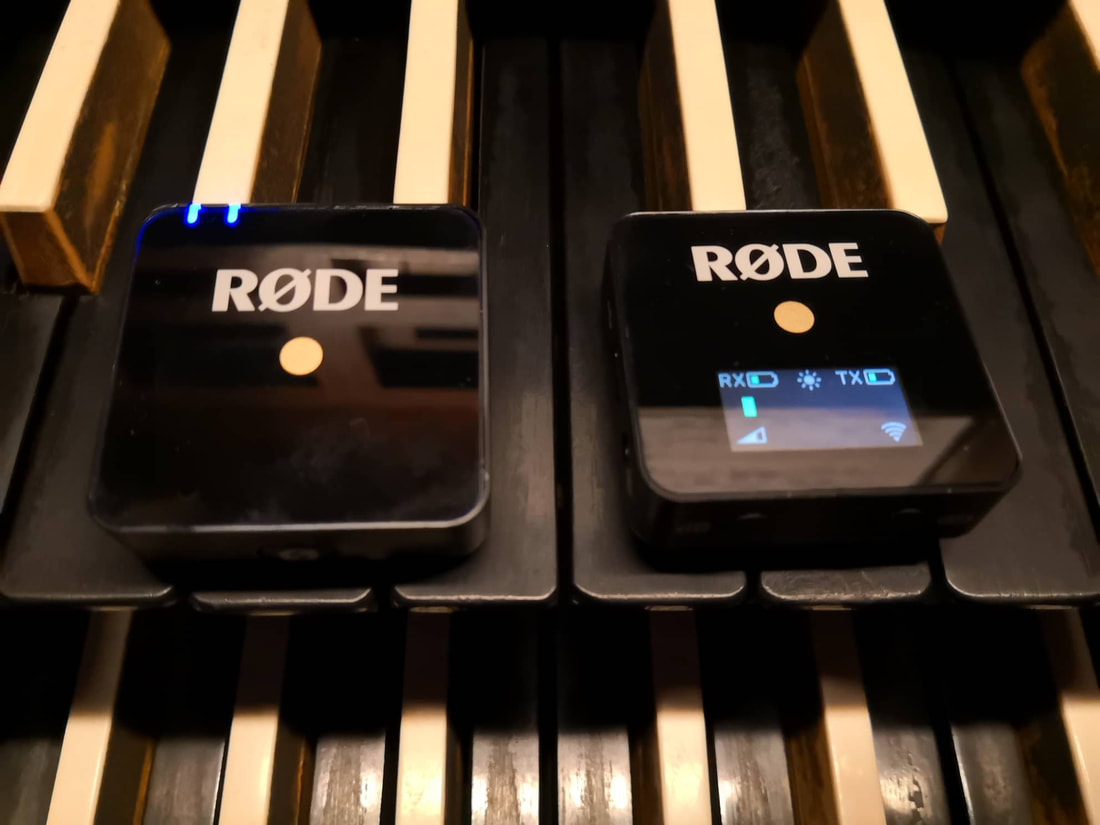
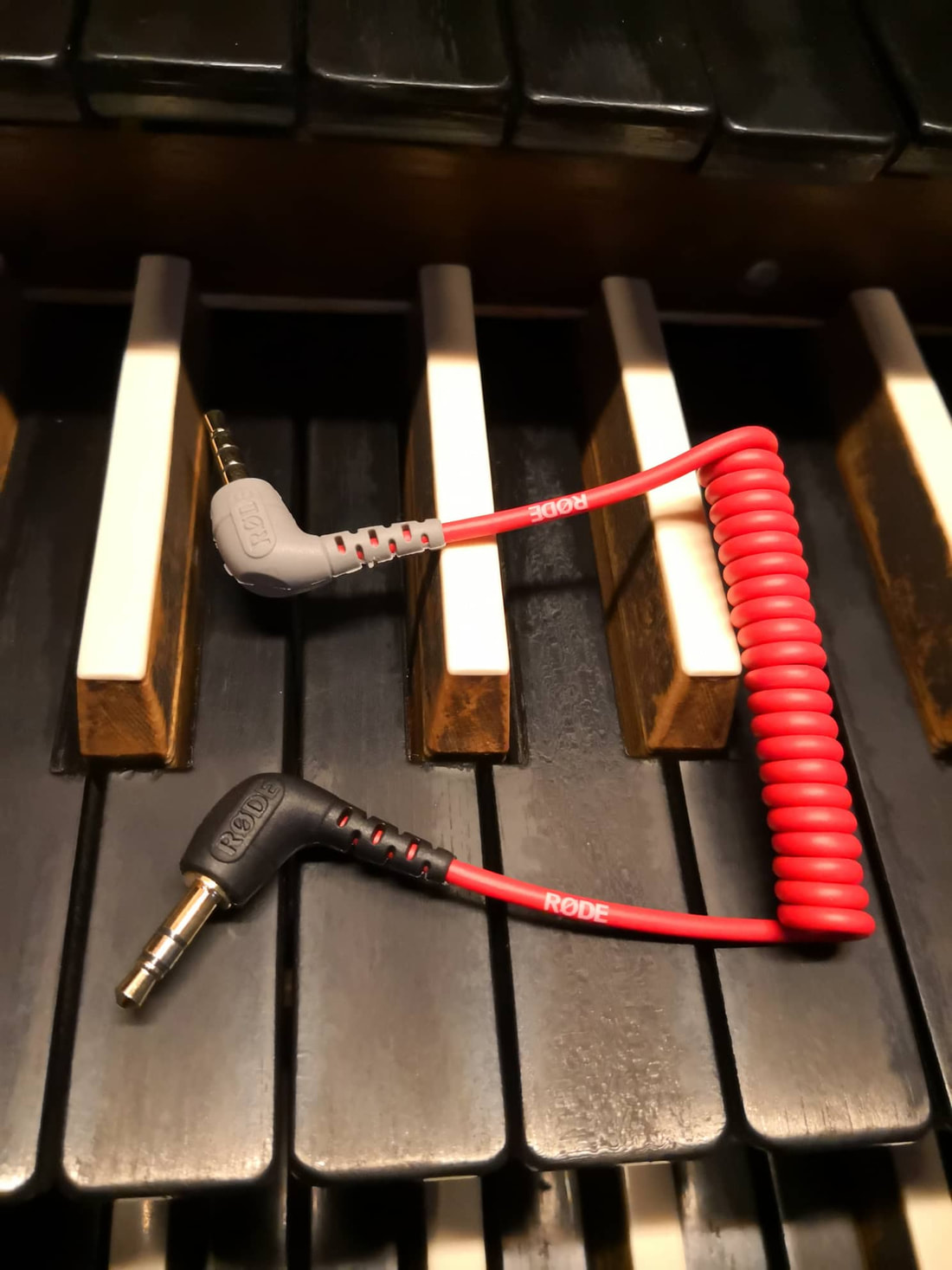
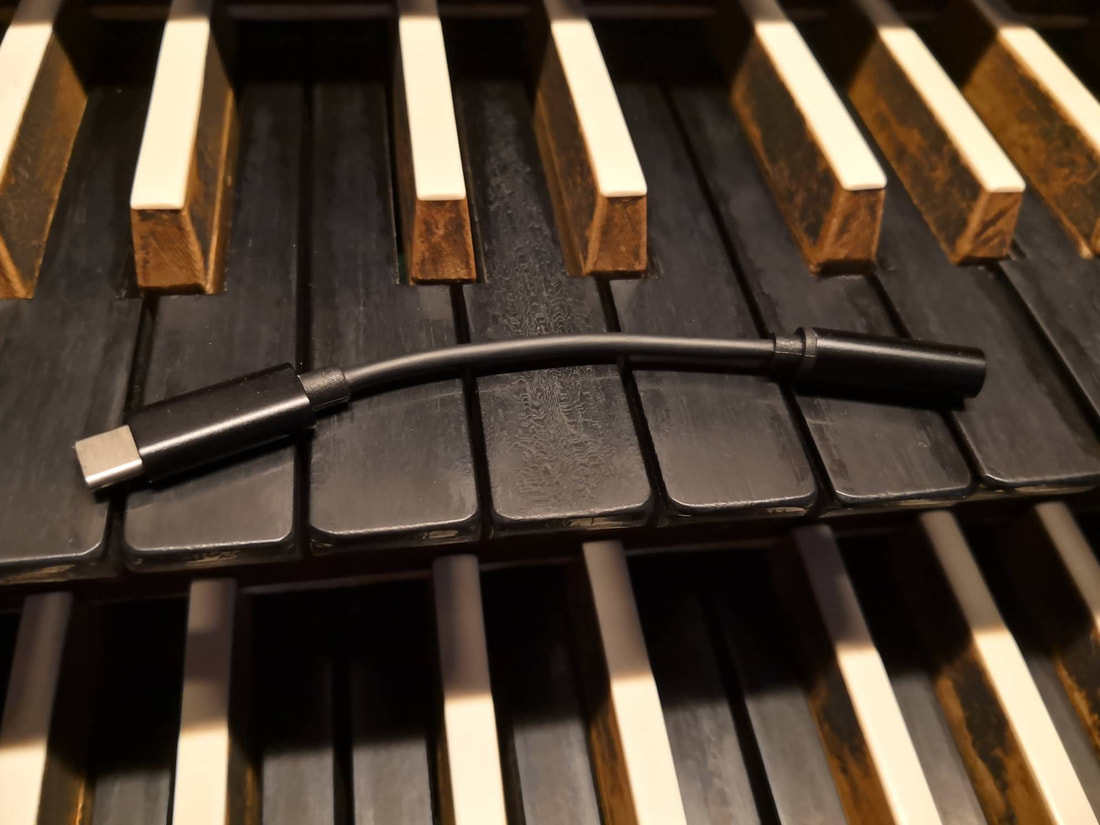
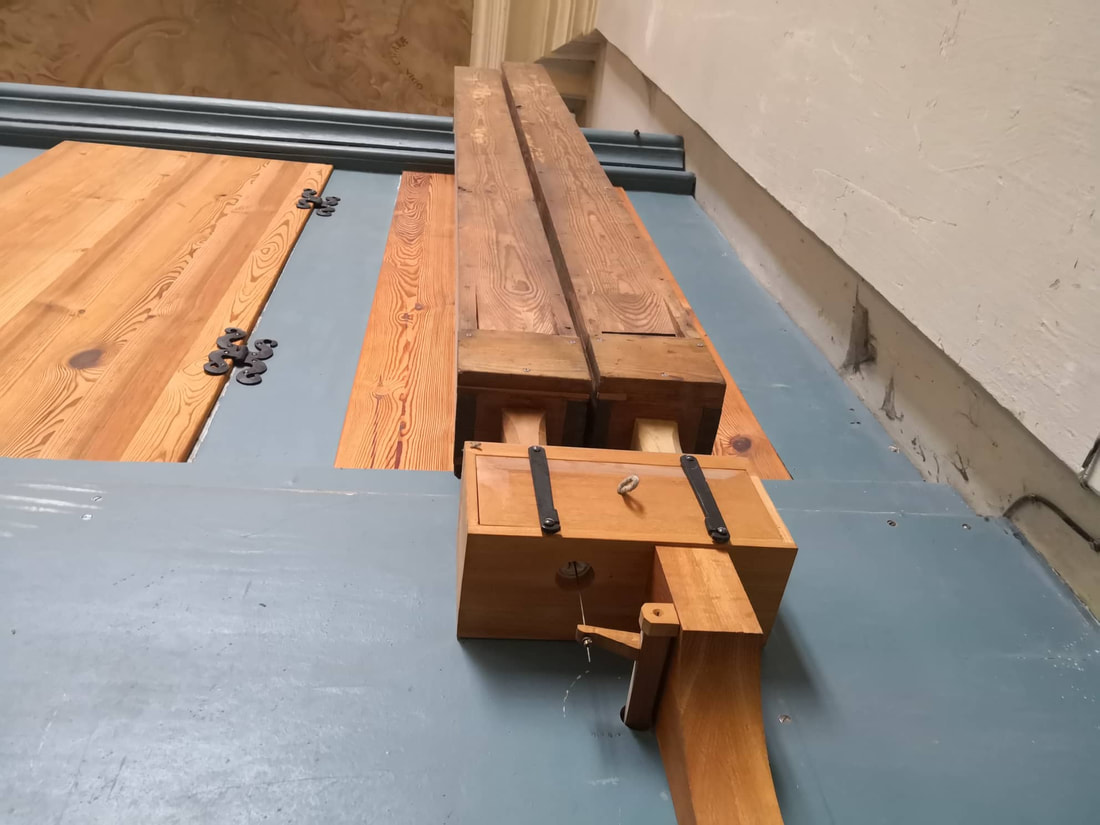
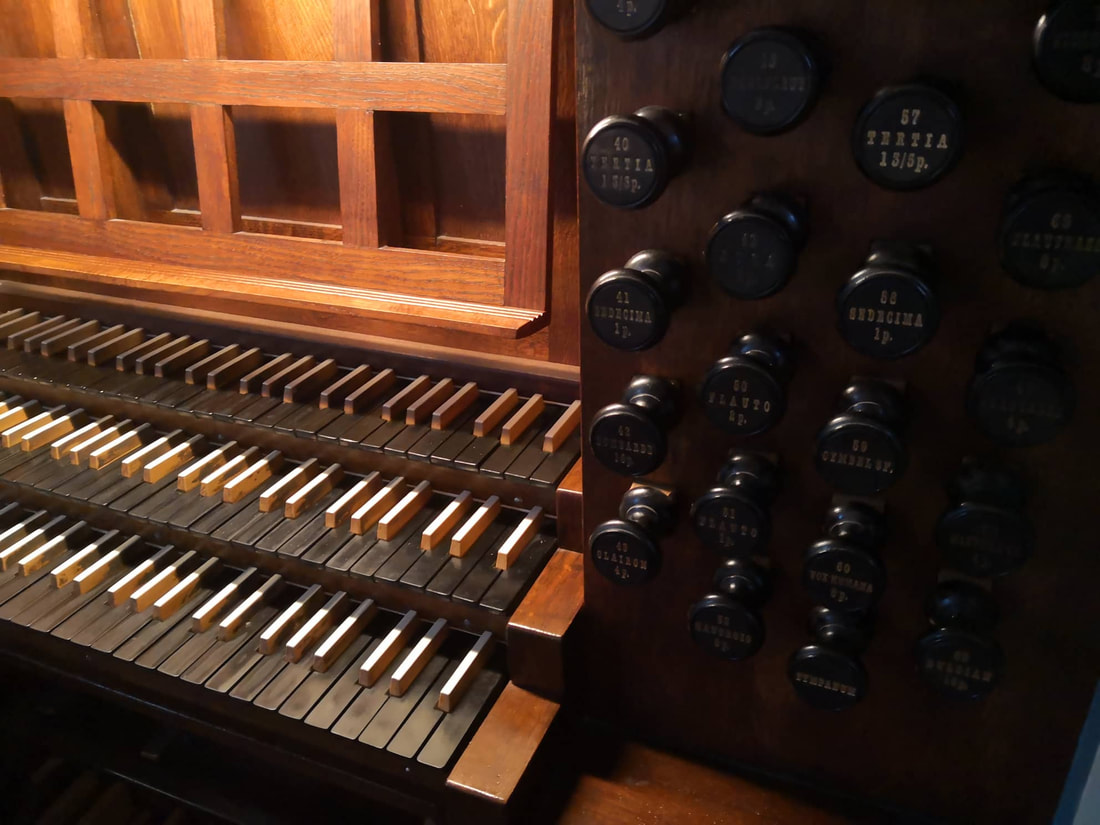
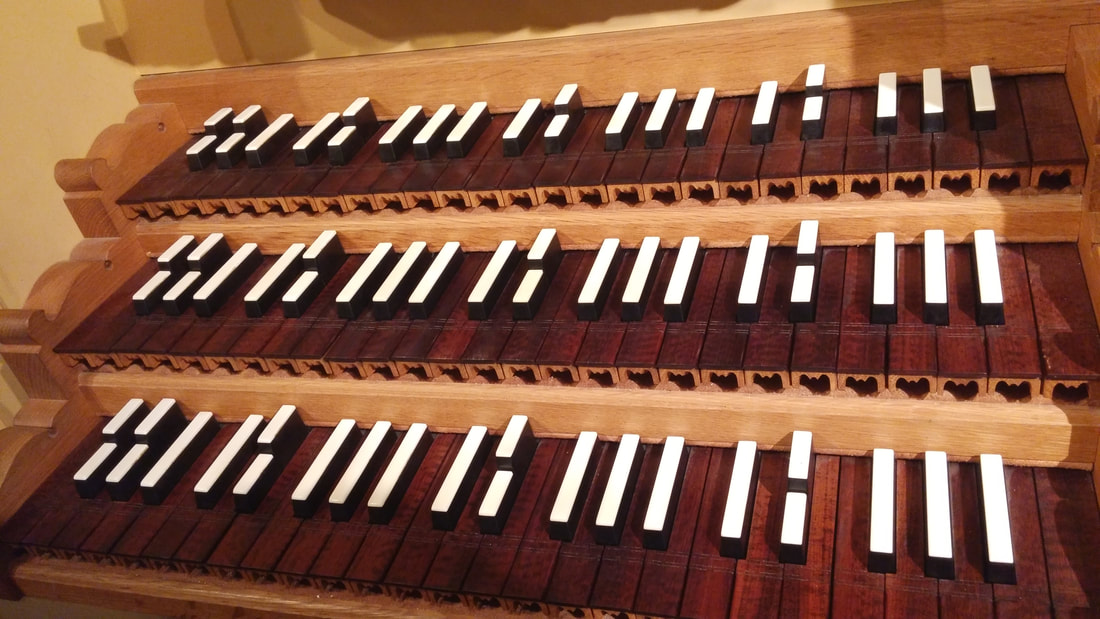
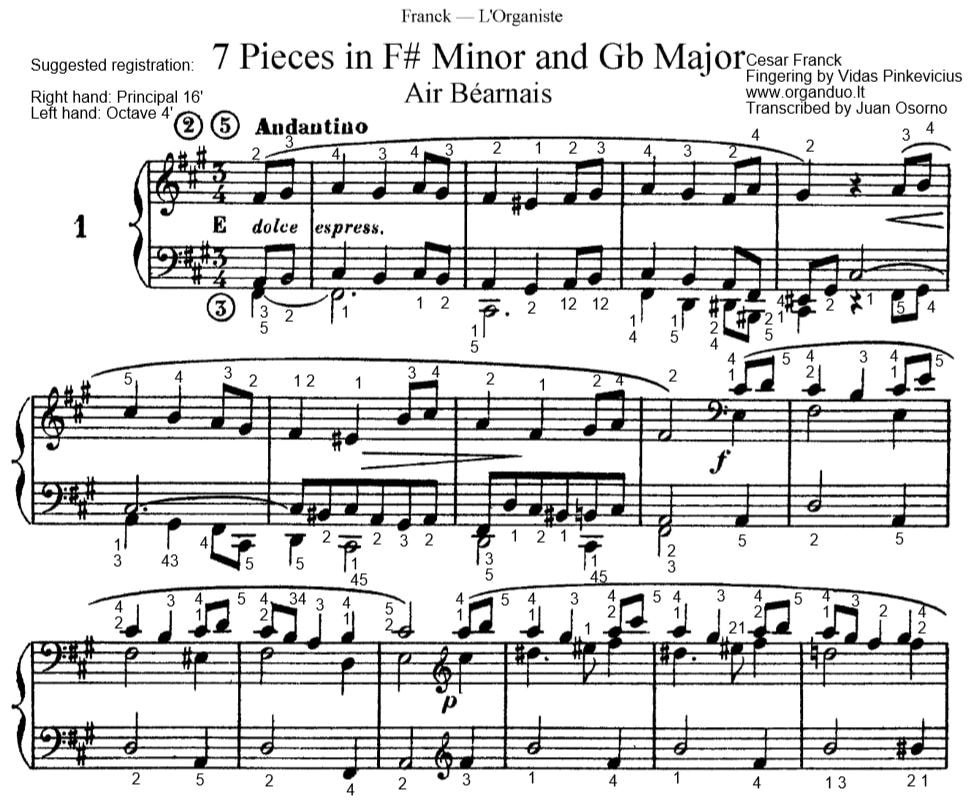
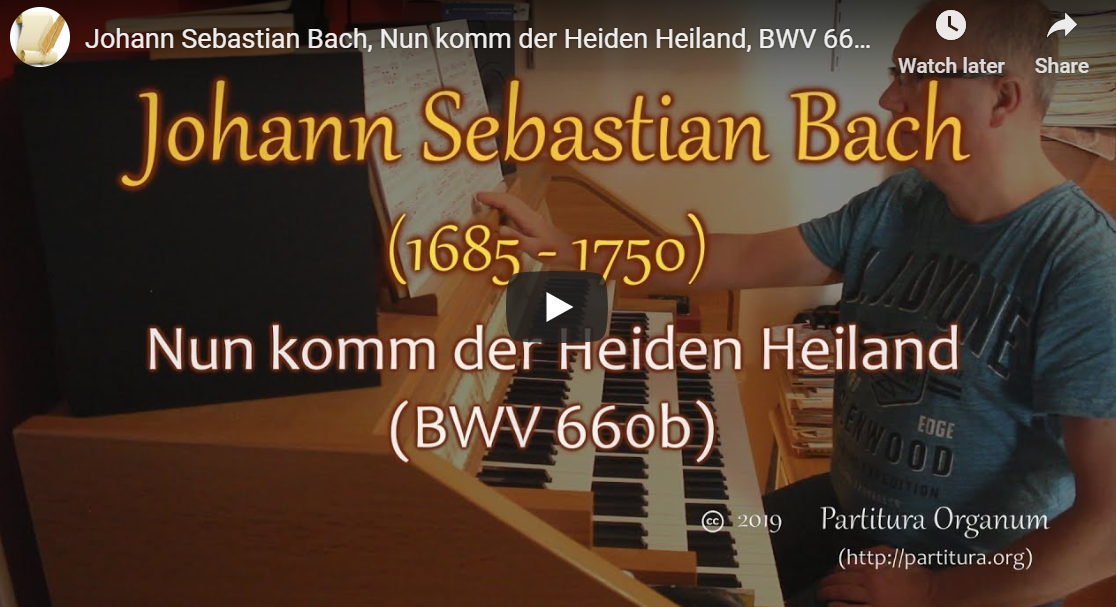
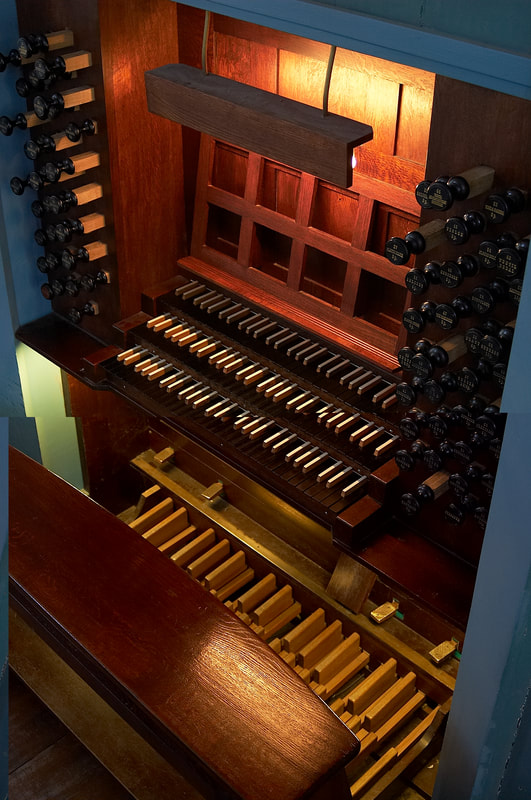
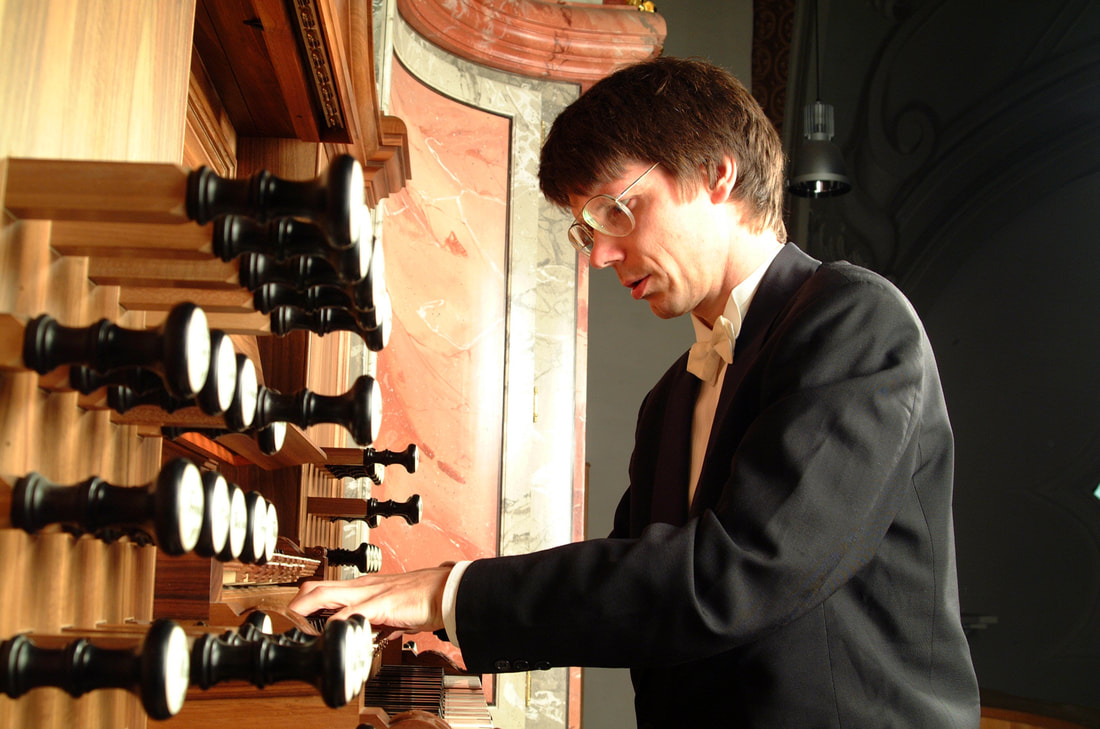



 RSS Feed
RSS Feed